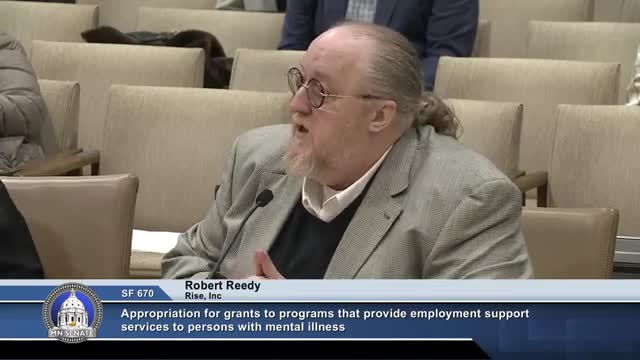Big Brothers Big Sisters requests continued DEED funding to expand mentoring; agencies report 4,500 youth served and 1,000 on waitlist
Get AI-powered insights, summaries, and transcripts
Subscribe
Summary
Representatives from Big Brothers Big Sisters and local branches asked the committee to continue DEED support; agencies said they serve over 4,500 Minnesota youth, have a 10% year‑over‑year increase in service and maintain a waiting list of about 1,000 children.
Senator Putnam presented Senate File 869 supporting continued Department of Employment and Economic Development (DEED) funding for Big Brothers Big Sisters programs in Minnesota.
Jackie Johnson, who manages youth mentoring programs in Central Minnesota, told the committee mentors provide consistent role models that “help them build confidence, resilience, and hope for the future.” She said mentorship also provides career exposure and help accessing postsecondary opportunities.
Princess Awadah Kissab (testifying as Princess Awada Kissib in the record), vice president of programs at Big Brothers Big Sisters Twin Cities, described her own experience as a program 'little' who later became a program leader: “My big helped me build confidence and trust in myself.... Big Brothers Big Sisters helped me realize my potential by igniting a belief in myself that I have the ability to actualize my greatest dream.” She cited a Harvard study showing mentored youth are more likely to enroll in college.
Pat Soukham, CEO of Big Brothers Big Sisters Twin Cities, said the three agencies represented at the hearing cover roughly 75% of Minnesota’s population, serve more than 4,500 young people (a 10% increase from two years prior), and maintain a wait list of about 1,000 littles awaiting matches. He told the committee that a $1 million appropriation two years earlier produced roughly $23 million in lifetime earnings gains for mentees in an economic analysis cited in his packet.
Committee members did not vote on SF 869; sponsors asked the committee to consider continued level funding to expand mentorship capacity and reduce the wait list. The bill was laid over for possible inclusion.
